
DAMASCUS, May 27 (Xinhua) -- Geneva international conference on Syrian issue which will be held in mid June, could be only a starting point to pave the way for resolving the long-standing stalemate as deeper hurdles lie ahead, analysts said.
The planned conference, which is expected to be attended by representatives from the Syrian government and the opposition groups, will tackle the recent U.S.-Russian efforts to revive political options for resolving the Syrian crisis, but experts wonder whether such gathering could achieve hoped-for goals despite the numerous snags facing it.
While the long-awaited U.S.-Russian understanding was hailed by the international community, both the government of President Bashar al-Assad and several opposition groups showed some hesitation over participation in the conference before they finally agreed to attend the conference "in principle."
In spite of the delayed response from both sides, their approval was expected because Washington and Moscow were behind the latest initiative, analysts said.
But the presence of armed radical rebels, the division among the opposition groups and the role of President Bashar al-Assad in the future picture of Syria will loom large during Geneva meeting and after the gathering.
RADICAL REBELS' REJECTION OF TALKS
Last month, the al-Qaida wing in Iraq declared its merger with the radical Nusra Front in Syria under the banner of the "Islamic State of Iraq and Syria." The hardline Islamist group has emerged as a main striking force and the most powerful among the numerous rebels' battalions.
The group said it rejects any political solution or an establishment of a democratic and civil state in Syria, calling only for the establishment of an Islamic state in the country.
Several political analysts said that the presence of al-Qaida- linked Nusra Front in Syria will be the main hurdle threatening the success of the planned Geneva meeting.
"The main dilemma now is the presence of armed radical groups in Syria which has the real weight on the ground and consists of more than 90 percent of the fighting rebel groups," Hmaidi Abdullah, a political analyst, told Xinhua.
"They won't accept a cessation of fire or solutions resulted from negotiations between the opposition and the government," Abdullah said.
He added that only the Syrian army is capable of fighting these groups, because even the moderate armed opposition can't stand its ground against the radicals.
Maher Morheg, another political expert and head of the oppositional Youth Party, echoed with Abdullah, saying that the radical rebels' existence is the main obstacle of the conference.
SYRIA'S OPPOSITION SCHISM
Wider cracks between liberal opposition figures and Muslim Brotherhood group members appeared during a recent days-long conference of the oppositional National Coalition to broaden its ranks and to name a delegation to the Geneva conference.
Analysts said even if the exiled opposition managed to put its differences aside and succeeded to bridge the gap with the government in Syria, it would still have to deal with the fact that they have no real weight on ground, especially among the Nusra Front fighters.
Such issue would put the peace talks at stake because halting violence is key to a political settlement, Abdullah said.
The western powers have taken pains to push the opposition to form a united front that could constitute a suitable alternative to the current administration in Syria. However, the Syrian opposition groups seemingly failed to overcome their differences.
Assad recently said that the rebel opposition could not implement a ceasefire.
"They are not a single entity. They are different groups and bands... They are a mixture and each group has its local leader," he said, asking, "Who can unify thousands of people? We can't discuss a timetable with a party if we don't know who they are?"
ASSAD'S STATUS IN POSSIBLE SETTLEMENT
The final political settlement in Syria would also have to deal with the role of Assad in the upcoming stage.
The Syrian opposition has for long required the departure of Assad as a prelude to any political solution to Syria's deadlocked crisis. However, the Syrian government has totally rejected that condition.
In the first Geneva meeting held last year, the superpowers didn't ask for the departure of Assad as a prelude to any negotiations.
Abdullah said that "Assad's status of the president shouldn't be a pre-condition to any dialogue but it could be discussed during the negotiations among Syrians themselves and through balloting boxes in the 2014 presidential elections."
He said ridding the country off the radical rebels should be done before talking about the destiny of the Assad administration.
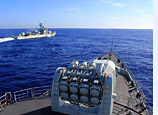
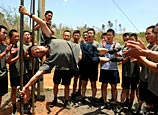
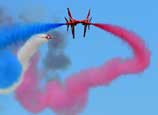
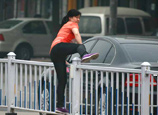
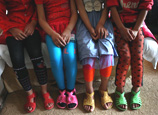
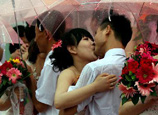

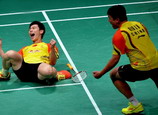
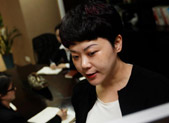
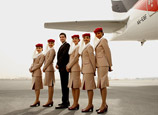






 China's Shandong witnesses frequent thunderstorms, downpours | More Photos
China's Shandong witnesses frequent thunderstorms, downpours | More Photos


![]()
